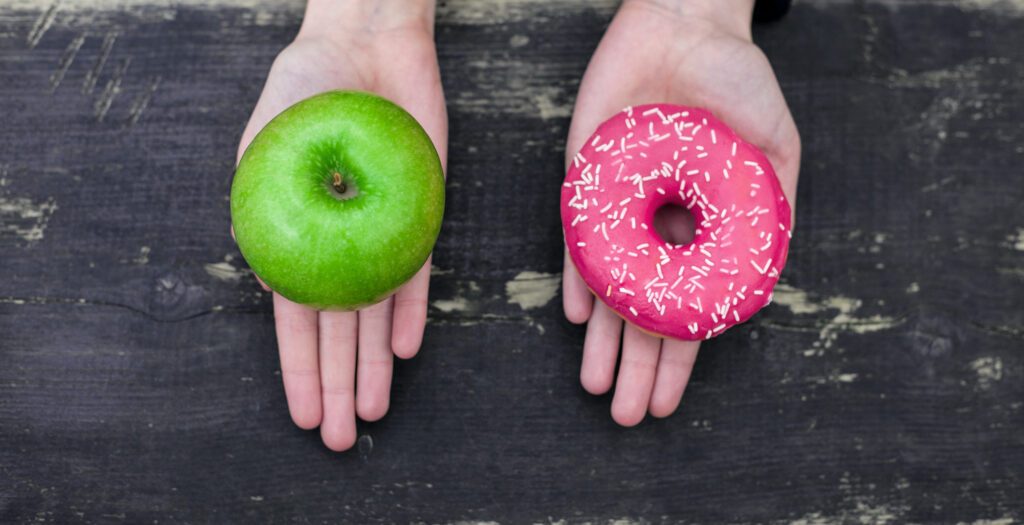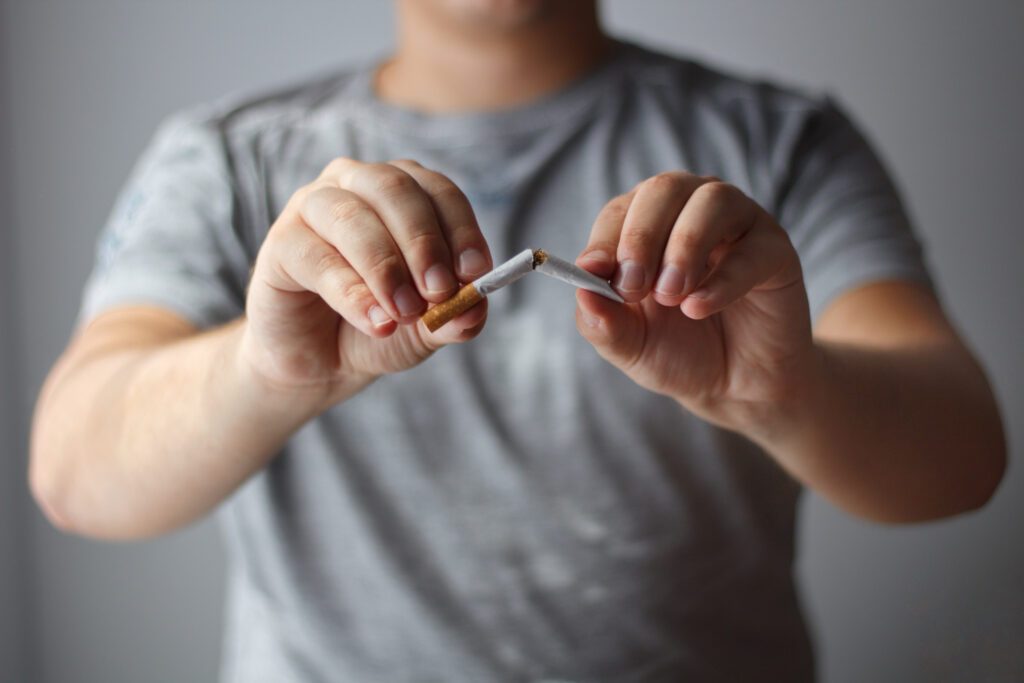The power of good habits is that they make you better. In this post, we look at how to build good habits and stop bad ones.
We demonstrate who we are by what we do, not by what we think. You may think you are this way or the other, but if what you do is just the opposite of what you say, you will be proving otherwise. We demonstrate who we are in the little things we do every day. We become who we are by keeping some habits and relinquishing others.
Like most things in life, habits compound, like a savings account with interest. When you have a positive habit, its benefits add on top of each other, and they grow exponentially with time. They compound to the positive. Alas, when you have a harmful habit, it also compounds, but to the negative. Its negative consequences add up and become increasingly worse with time.
This compounding effect means that mall habits can have a significant impact on our life. They can transform our lives profoundly, for the better, or the worse. The trick is to select our habits well and be consistent in keeping them.
When you select and maintain a good habit, one that makes you healthier, more thoughtful, fitter, or wealthier, you become that better person you want to be.
Habits are a vital ingredient for a meaningful and successful life, so we are dedicating today’s post to them.

Atomic Habits
Habits are such an essential part of a good life that a book dedicated to them, Atomic Habits, has become one of the biggest best-sellers of the last couple of years. This book is the place to go if you want to learn about habits.
Atomic Habits was published in 2018, and since then, it has sold more than 5 million copies worldwide. The author of the book, James Clear, has dedicated his life to researching, talking, and writing about habits in his podcast and blog. This book is the coronation of his life’s work.
Clear believes we fail when working on our habits because we tend to focus on goals, not systems. We want to stop smoking, lose weight, save money, or be more productive at work, which is excellent, but we don’t focus enough on what will make us achieve those objectives. As Clear states, “you do not raise to the level of your goals. You fall to the level of your systems.” You might have lofty goals but won’t achieve them unless you set up suitable systems.
In Clear’s words, personal changes operate at three different levels: outcome change, process change and identity change. They all have their benefits, but the most permanent and impactful change will come at the identity level. Through your regular habits, you are telling yourself and others who you are. Habits are a vote on the type of person you want to be.
From smoker to runner
I agree with Clear here. Linking habits to your desired identity can be very powerful. I didn’t verbalise it in such an explicit way, but this is something that worked for me when I stopped smoking nine years ago.
I was a heavy smoker, of more than a packet per day. I used to wake up in the middle of the night and smoke a cigarette before going back to bed (yes, I know, that’s disgusting, and desperate). I tried giving it up many times, and sometimes I’d stop for a few days, other times for a few weeks, but I’d always end up having a puff, and, in no time, I was chain smoking again. I now realise that at the time, I saw myself as a smoker and didn’t want to change that.
The big change came when I realised I wasn’t a smoker if I didn’t want to be one and could be someone else. I stopped smoking for the 50th or 60th time, and I started running. I enrolled on a 20 km race in Berlin and started training for it. Considering I hadn’t run for more than a couple of kilometres for ages, it was quite an ambitious goal, but I had a few months to train. I swapped a harmful habit, smoking, for a healthy one, running, and this was made possible because I also changed my identity: I went from smoker to runner.
I haven’t smoked since then and have run a couple of marathons and triathlons. The identity change is now complete, and I don’t think I will ever return to smoking again. Never say never, but that’s how I feel today.

The four laws
In his book, Clear mentions four laws for habit creation.
1st Law, Cue – Make it Obvious
The 1st Law is called Cue, about making it obvious. All habits are triggered by something. Our minds make connections about what triggers certain habits. For example, when I was a smoker, I had to smoke a cigarette after each meal and whenever I was having a coffee. That was my cue.
If you want to maintain a positive habit, Clear suggests making the cues for the habit obvious and easy to spot. It is about being more mindful of our habits, the ones we want to have more of, and creating the right stimuli and cues for them.
We can design our environments to make the cues for our desired behaviours more visible. This will make our work easier. We need to create the right system to make the flourishing of our desired habits easier.
2nd Law, Craving – Make it Attractive
Once we have associated a cue with a habit and made it obvious and easy to spot, we need to make it attractive.
Our minds make links and associations between different behaviours and actions. We can use this to our advantage by pairing actions we want to do with those we need to do. For example, if you want to check your social media but also need to do more exercise, you can create a rule that you will do ten push-ups before connecting to Facebook. This will make our habits more attractive by association.
Another approach we can take to make our habits more attractive is to join a culture where that habit is appreciated and valued. In my transformation from smoker to runner, I found it helpful to spend more time with friends who were also runners, make running trips, train together, etc. That made this habit stickier and much more enjoyable.
3rd Law, Response – Make it Easy
Our brains are lazy. Our minds like shortcuts and the path of less resistance. Any action or behaviour will have more chances of becoming a regular habit if we make it easy and it doesn’t feel like a chore or something difficult.
There are many different things we can do to make our habits easy. First, we should reduce friction and the number of steps between ourselves and our habits. The simpler and easier, the better.
We can also prepare our environment to make our desired habits easier. Investing in technology and one-off purchases that will make your future habits easier is also a winning strategy.
4th Law, Reward – Make it Satisfying
The aim of the first three laws is to enable the creation of a habit by making the behaviours linked to it visible, attractive and simple. The fourth one ensures a behaviour is repeated and becomes a habit. For that to happen, we need to reward it.
An obvious action we can take here is to reinforce the desired behaviour by rewarding ourselves when conducting it. You can give yourself a little treat every time you maintain a positive habit. Our brains are responsive to positive and negative reinforcements, so this will help fix the desired behaviour, and our brain will associate it with the reward, thus craving for it.
Clear also suggests the creation of a “habit tracker” to track habits, see what we do easier, where we have difficulties, etc. This can be helpful at the beginning when you want to fixate the habit, but it might be cumbersome afterwards. It all depends on your tastes: if you enjoy tracking things and are a tracking device freak, by all means, go ahead and track your behaviours too. Personally, this stresses me a bit, and it becomes hard work, so after a while, I stop doing it (basically, this behaviour is not attractive, easy and rewarding enough for me to become a habit).
Stopping bad habits
Stopping bad habits is often more important than creating new ones. Giving up smoking is one of the best things I have done in my life. Luckily, stopping bad habits is as easy or as hard as creating good ones. You just need to follow the inverse process. Thus, the four laws mentioned above are transformed into Make it Invisible, Make it Unattractive, Make it Difficult and Make it Unsatisfying.
You need to do the opposite of what you were trying to create the habits, and you’ll be fine.
Why habits matter
We become who we are by our actions and behaviours. When these are regular, we call them habits. Habits sculpt us into the person we become. Good habits create a healthy, productive, satisfied and happy person; bad habits just do the opposite.
As already mentioned, consistency trumps anything else, including intensity and talent, so start small if need be, but be constant, and you’ll get there.
I am trying to build the habits I want to have in my life, like writing regularly, spending more time with the people I love, exercising, and meditating every day. I try to be as consistent as possible, but there are days when I don’t show up. It happens to the best of us. When that happens, I try not to be too tough on myself, reflect on why it happened and learn from the experience. This is how I work on consistency and integrate my desired habits in my daily routine.
By working on my habits, I am becoming a better version of myself, or so I hope. And you, what are you doing about it?
2 comments
[…] like, relationships we don’t enjoy, thought and behaviour patterns that make us unhappy, and unhealthy habits. We don’t learn new things, we don’t create anything new, we don’t […]
[…] vision moves a team forward. A resolution leads our behaviours and helps us develop new, more helpful habits in our […]